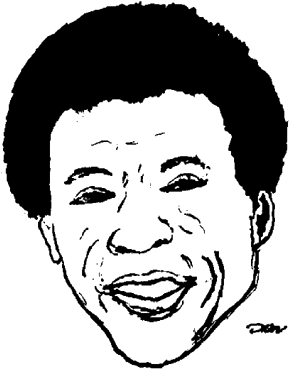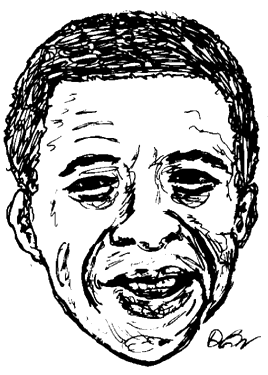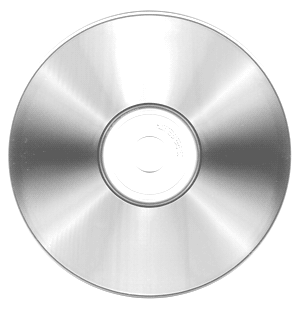"Party ('Till The Lights Go Out)"
David Brinston
Composed by Linda Stokes
Listen to David Brinston singing "Party" on YouTube.
May 1, 2010: "Party 'Till The Lights Go Out" Never Grows Old
I just heard "Party ('Till The Lights Go Out)" by David Brinston come over the radio, totally unexpected, like the sun coming out after three days of persistent clouds. The Linda Stokes-written tune, the highlight of Brinston's superb 2001 album,
Fly Right, on the defunct Suzie Q label, has lost none of its power.
The hiphop generation associates "Gin And Juice" with Snoop Doggy Dog, but when David Brinston sings:
"It's a party tonight.
Everybody's in the mood.
People are everywhere,
Drinking up gin and juice."
--Southern Soul fans rock to the beat of one of contemporary R&B's most beguiling mid-tempo classics, an anthem that captures all the good-timey ambience of Snoop Dog's and then some.
"And all the ladies looking good
With their new dresses on. . . "
Brinston continues.
"Everyone's dancing.
They don't want to go home."
This is the song that countless chitlin' circuit club advertisements have used as their background music on Deep South radio stations for going on ten years. Its effortless-sounding rhythm section has never been equaled. Brinston's sugary vocal is one of the most winning performances in the history of contemporary Southern Soul.
"Get your groove on, baby.
Like you never did before.
You can't party sitting down.
You got to get out on the floor.
It's been a long week.
It's time to have some fun.
Forget about your troubles.
Let the party begun."
(sic) (It rhymes with fun.)
Out on the chitlin' circuit's smoky dance floors and sun-drenched lawns, hips sway, arms spread, pelvises roll and smiles abound. And those first beads of sweet sweat pop out on upper lips.
"You might be with someone's woman
Or somebody's man.
We ain't here to knock it.
We just want to dance."
Like many of his peers who came of age in the nineties, David Brinston's career has had its share of ups and downs in the 21st century. Through it all the performer's reputation as a seminal contemporary Southern Soul artist has held firm.
It all started with "Party." Both the artist and his fans know every time they hear "Party 'Till The Lights Go Out"--even ten years after--that they are being buoyed by an unexpected and fortuitous wave of good fortune. "Party" remains an indisputable triumph of inspiration, melody, mood and mesmerizing rhythm: a still potent source of the simplest, purest pleasure.
--Daddy B. Nice
 August 12, 2018:
August 12, 2018:
New CD Review!
See Daddy B. Nice's New CD Reviews.
February 28, 2018:
Daddy B. Nice Announces THE WINNERS of the 2017 (11th Annual) SOUTHERN SOUL MUSIC AWARDS.
Click here.
February 1, 2014: NEW ARTIST GUIDE ALERT!

David Brinston is now the #15-ranking Southern Soul artist on Daddy B. Nice's new 21st Century Top 100 Countdown.
Go to Daddy B. Nice's new 21st-Century Artist Guide to David Brinston.
************
See "Tidbits" below for the latest updates on David Brinston, including "David Brinston: A Cautionary Tale"--a major, critique of Brinston--published on Daddy B. Nice's Corner in 2007. (Scroll down to Tidbits #9.)
To automatically link to David Brinston's charted radio singles, awards, CD's and other appearances on the website, go to "Brinston" in Daddy B. Nice's Comprehensive Index.
********************
Daddy B. Nice's Original Critique: In Praise of "Kick It"

The near-perfect song. The perfect recording. The perfect, if also perfectly obscure, artist.
There is really no defensible reason, other than that David Brinston is one of the most under-appreciated performers in contemporary rhythm and blues, to deny that "Kick It" can stand right along such standards as "Big Head Hundreds" by
Johnnie Taylor as a dance floor jam of the first order.
Listen to David Brinston singing "Kick It" on YouTube while you read.
It's also one of the few songs in the Southern Soul canon to have a production as scintillating as state-of-the-art hiphop. Yet the wall-of-sound power is never, like so much of today's urban R&B, an end in itself. David Brinston, in keeping with Southern Soul's emphasis on real life, has a story to tell, and the powerful rhythm track--like his sensitive tenor-to-falsetto vocal--is just part of the means to telling the story.
Nor is "Kick It" a fluke. David Brinston has an ear for melody. His early songs--"Hit And Run" in particular--displayed his talent for combining mid-tempo rhythm tracks with original melodies, and deejays of the Deep South followed "Hit And Run" with a series of Brinston songs, among them "I'll Be There," "Trouble Maker," and "Two Way Love Affair."
"Party 'Til The Lights Go Out (Nothin' But A Party)," the companion piece to "Kick It" from 2001's
Fly Right CD (Suzie Q), went from being the first radio single from the album to a fan favorite and classic, queued up with other, more well-aged oldies in Southern Soul rotations to this day. While "Kick It" is delivered with more intensity, "Party 'Til The Lights Go Out" showcases Brinston's ability to play with the big boys (
Bland,
Sease,
Davis,
Waiters) by doing what they do--serving up a party jam with the utmost of ease.
"All the ladies looking good,
With their new dresses on.
Everybody's dancing, oh yeah.
They don't want to go home."
The poignant line in "Party" is:
"You might be with someone's woman,
Or with somebody's man.
We ain't here to knock it,
We just want to dance."
It tells you just how far the song's hero is willing to go to keep the good times rolling. A long way---past any woman's patience, to be sure. And that's where the lyrical story in "Kick It" diverges from the harmonious partying in "Party 'Til The Lights Go Out."
The bass pounds the bottom of "Kick It" like there's no tomorrow, and as if to accentuate how good the groove is, Brinston holds off for a few bars and in a low voice-over summarizes the situation. A few of the old pals--now married or otherwise tied down--want to get together again, and there's just no way David Brinston's everyday hero can bear to miss it.
"I know I've got to go home,
And face this woman of mine.
But right now I got to kick it, y'all,
Just one more time."
Meanwhile, a metronomic chord change--normally the province of a guitar but here a Spector-like wash of sound--has welded symbiotically onto the chugging rhythm track, making a monster of a dance floor groove that only a couple of other Southern Soul singles in recent memory (
Stan Mosley's "Anybody Seen My Boo,"
O. B. Buchana's "Let's Get Drunk") have come close to matching.
It would be mind-blowing if it were only an instrumental, but the lyrics--happily for us fans--are infused with uncommon particularity and charm.
"My old lady's getting tired,
Tired of my past.
She already told me
She was going to leave my ass."
Songwriter
Linda Stokes, who wrote both "Kick It" and "Party," producer
Marshall Jones and Brinston make for a creative trio of unusual skill and originality. But the key is Brinston's unique tenor and syncopated rhythms as perfected in "Kick It." If
Sam Cooke or Smokey Robinson were recording today, their work might sound like this.
--Daddy B. Nice
About David Brinston
David Brinston was born in Marks, Mississippi--near blues hub Clarksdale--in 1959. Biographical data is hard to come by and in some cases conflicting, but sometime between 1992 and 1995 (if not before), Brinston began working on the songs for his first album, Hit And Run, released on a small label (Jomar) in 1996. The single "Hit And Run" was successful on the chitlin' circuit and appeared in a "Southern Soul" collection the following year.
Most music guides show a gap until the release of Fly Right (Suzie Q Records) in 2001, but at least one other CD appeared, 1999's Somebody's Cuttun' My Cake(Met). "Two Way Love Affair," another mid-tempo, groove-friendly tune, comes from that disc.
Since the release of Fly Right, which by all musical measures and fan response should have been Brinston's breakthrough LP, a commercial silence has settled in. Relations between David Brinston and his former record company, Suzie Q., appear to be at an end.
Nevertheless, Brinston has built up great respect and name recognition amongst chitlin' circuit peers and Southern Soul fans, and he continues to appear as a headliner at Deep South venues.
A very good David Brinston radio single appeared in 2003, a slow ballad titled "I Love Being Tied Down," showcasing Brinston's reverent, romantic side. Longtime Brinston-favored, Southern Soul songwriter Linda Stokes composed the gem. Ironically (in light of Brinston's commercial inaccessibility), the lyrics to "I Love Being Tied Down" begin with the phrase, "People have been asking about me. . ."
Song's Transcendent Moment
"You might be with somebody's woman
Or somebody's man.
We're not here to knock it.
We just wanna dance."
Tidbits
1. March, 2005: Your Daddy B. Nice hears something new, a version of "Party 'Til The Lights Go Out (Nothin' But A Party)," with just enough differences to make the Southern Soul classic sound fresh all over again. It turns out to be a cover of the Brinston tune (which was written by Linda Stokes) by Hardway Connection from the group's debut CD, Hot Ticket (Wilbe, 2005).
2. July 2005. A new radio single from David Brinston, "Rockin'," appears on the Stations of the Deep South. A few days later, the new Brinston CD, Rockin', is released on a new label (for Brinston), Waldoxy Records. On first perusal, no tracks stand out as prominently as "Kick It" and "Party 'Til The Lights Go Out" from the Fly Right CD.
"Junk In Her Trunk" from the CD is getting less air play on the chitlin' circuit than an unrelated song called "Junk In The Trunk" from new artist Robert Hill. Title cut "Rockin'" is okay but certainly not on the level of Brinston's best work. Rockin's most evocative track--and the one that recalls Brinston's most passionate material--is the ballad "Should Have Been Me." One comes away from the CD somewhat disappointed and more than a little convinced that Brinston has weathered some serious changes.
3. October 1, 2006. I like David Brinston's new radio single, "Mississippi Boy" ("Mississippi's Where It's At"). It's further proof that Brinston is beginning to "loosen up" again. But did he have to use the title "Mississippi Boy," thereby stealing some of the much-needed spotlight from Will T.'s excellent but super-obscure "Mississippi Boy"? (See story in DBN's Charles Wilson artist guide.)
Why do people do one another like that?
Lest people think I'm being hard on Brinston, let me remind them of how highly I regard Brinston's own super-obscure and so-hard-to-get yet excellent Fly Right CD (Suzie Q).
Which reminds me of where I would put Brinston on a list of the five most under-appreciated Southern Soul singles of the new century. I know. That's a hopelessly subjective chore. I could come up with dozens of such under-valued "five-packs." But these--in descending order to number one--are the five Southern Soul songs that most come to my mind when I think, "Why don't they play this song on the radio more often?":
5. "Southern Girl" by Lee "Shot" Williams
4. "Mississippi Boy" by Will T.
3. "I've Lived It All" by Carl Marshall
2. "Let's Get Drunk" by O. B Buchana
1. "Kick It" by David Brinston
DBN
4. April 28, 2007. The demand for David Brinston's out-of-print albums (Fly Right and Hit And Run) is reaching staggering proportions. Fly Right, the better of the two, is impossible to find, even through used sources. And I just saw a used copy (only one!) of Hit And Run advertised for sale at the hefty price of $47.95. It sure would be nice to see Waldoxy, Brinston's new label, acquire the rights to those albums and re-issue them. DBN.
5. August 18, 2007. Still Searchin' For The Right Fit Department: David Brinston has switched labels again: from Waldoxy (a division of Malaco Records in Jackson, Ms.) to Ecko (John Ward's label) in Memphis. A new release is imminent. DBN.
6. November 21, 2007. Ecko Records has re-issued David Brinston's Somebody's Cuttin' My Cake album, originally released on an indie label in 1999. The title cut shines through with particular brilliance, especially in relation to Brinston's latest material. (At first, when I heard it by chance, I leapt for joy, thinking it was new Brinston, until I realized it was "Somebody's Cuttin' My Cake.") The re-issue also salvages two other early and worthy Brinston hits: "I'll Be There" and "Two Way Love Affair." DBN
7. November 4, 2008: NEW CD ALERT
Party Time (Ecko)
Bargain-Priced Party Time CD
First Single: "I Just Love Women" Daddy B. Nice's #6 Southern Soul Single August 2008)
*********************
8.
P.S. The following commentary ran under the title, "David Brinston: A Cautionary Tale" on Daddy B. Nice's Corner in 2007.
Clarksdale, Mississippi-born
David Brinston's career is a cautionary tale for young recording artists who believe the first hit or two is just the beginning of an endless gravy train of hits.
You can spend a career trying to get back to the lofty place where an initial hit transported you, and what you thought was as easy as falling backwards can become the hardest thing in the world to do.
David Brinston's been switching styles and recording studios the way a debutante changes dresses (Waldoxy, self-production, and Ecko in the space of the last three CD's), but it seems increasingly possible that Brinston will never again reach that cloud-kissed peak represented by
"Party ('Till The Lights Go Out)."
On certain songs on the last three albums, you can tell David is trying to recapture the magic, but that's the problem. Those early classics ("Party," "Kick It," "Hit And Run," "Somebody's Cuttin' My Cake") were so effortless-sounding. That was their special magic.
You know a song is a classic--something that a significant number of people instantly recognize--when you hear it used as filler in radio commercials, and you continue to hear it, year after year, in advertising as you do with David Brinston's "Party ('Till The Lights Go Out)."
Chitlin' circuit bars and lounges in particular use the song as a backing track because, better perhaps than any other contemporary rhythm and blues record (and that's saying a lot), Brinston's
"Party" represents the ultimate in Southern Soul good times.
"You might be with somebody's woman
Or somebody's man.
We're not here to knock it.
We just wanna dance."
What was it about that record that captured lightning in a bottle? Was it the studio--Suzie Q Records,
Stan and son
Lenny Lewis? Was it the producer,
Marshall Jones? Was it songwriter
Linda Stokes? Or was it
Morris J. Williams, a major contributor to the Ecko sound of recent years, who was also involved in the sessions? Or was it all of them, merging into one big creative
Sly and the Family Stone-like dynamic?
The credit has to be given to Brinston. It was his deal, after all, although one has to point out that
O. B. Buchana, also with Suzie Q, scored around the same time with his never-since-equaled "Let's Get Drunk," as did
Maurice Wynn with his obscure, one-hit-but-wondrous Southern Soul classic, "What She Don't Know (Won't Hurt Her)."
At any rate, Brinston and his colleagues found something rare: an electric, propulsive, folk-rockish Southern Soul that looked to die out until--thankfully--
Theodis Ealey came along, rejuvenating the genre and, many might say, taking it to new heights.
Brinston's last two CD's, one self-produced and the other recorded at Malaco/Waldoxy--have not been impressive, and, truth be told, neither is this newest one from Ecko. In retrospect,
"Mississippi Boy" is possibly the best song Brinston has recorded in the last two or three years. At least it's light and real, achieving a loose, country kind of authenticity. But if the old canard is true that every artist (with the exception of the giants) spends his career essentially trying to return to the scene of his breakthrough hits, then Brinston's "country" songs ("Mississippi Boy," "Breast Man"), fresh as they are, still lack the romantic fizz and spectacular grooves of "Party" and "Kick It" and "Hit & Run." (Which is not to say it might not be a viable artistic direction.)
Financially, of course, David may be reaping rewards he never realized in the Suzie Q days when his material wasn't distributed and the Southern Soul audience was the size of a shriveled pea. And that's all to the good.
But an indicator of how blase I've become about new Brinston material is that I left the unopened promotional CD--
Here I Go Again--on my desk without opening it for longer than I care to admit. Back in the day, around the turn of the century, I would have fallen on a David Brinston CD like a starving wretch devouring a Thanksgiving feast. I'd have broken the seal the minute I set eyes on it.
As I do with every artist's CD, I gave each track a chance to work on me, and in fact was looking hard for something to get behind because Brinston is such a favorite of mine. A couple of the songs ("Too Many Women," "After Party") made your Daddy B. Nice's Top 10 Singles Charts, but they weren't highly-ranked. They were competent, at best "catchy," but Brinston's recent work has a sugary, airy, cotton-candy-like quality that seems to dissolve quickly.
"You Took That Dog In Me" seems to be the track in which Brinston has invested the most emotional commitment, but the song simply has too many elements of too many previous David Brinston songs to stand on its own naked merits, which is pretty much the story of Brinston's latest work in general.
I also like to listen to new music on the radio--fresh and unscripted--and as I listened to a few of Brinston's newest tunes on the radio at random over the last few weeks, I found myself bending over backwards to like them, but it just wasn't there. The chord changes were all so predictable, the variations in melody so modest and flat. The tunes as a whole sounded familiar, and we all know what familiarity breeds.
And there's something else. David Brinston's vocals are not getting stronger. It's the instrument itself: David's pipes were never anything to write home about (except on Daddy B. Nice's favorite Brinston song,
"Kick It"), but at its optimum, "Hit And Run," "Party ('Til The Lights Go Out)" and the aforementioned "Kick It," Brinston's vocals had a sensitive, ravaged charisma on the order of Marvin Gaye and Smokey Robinson.
It was a quality he shared with the recently deceased Southern Soul artist
Frank Mendenhall, which begs the comparison of what would have happened if David Brinston had recorded as few songs as
Frank Mendenhall did. How would our perception of him be different at this point in time? Better, worse? I'm not going to go there, because I'm not sure myself.
All I know is I'm having a hard time getting used to the "new" David Brinston--today's David Brinston--the middle-of-the-pack journeyman, always to be counted on for a certain professional level of Southern Soul music, but nothing extraordinary or magical.
I'm in love with the great, unknown-genius David Brinston of the early 00's, and I don't want to give up that reason for cherishing him. Latter-day fans don't know what they're missing, and, sadly, with so much of the early material out of print, you'd have a hard time convincing them of what a Southern Soul Superstar David Brinston really was.
DBN
******************
9.
Author's Note, July 30, 2009:
David Brinston has a new album in the works called "Dirty Woman." Watch for the first single--and title cut--"Dirty Woman" on
Daddy B. Nice's Top Ten "Breaking" Singles in August. J. Blackfoot, who collaborated with Sir Charles Jones with much success a couple of years ago on the song "I'm Just A Fool For You," here teams up with David Brinston, both veterans trading vocals with gusto.
DBN
Bargain-Priced Dirty Woman CD
Comparison-Priced Dirty Woman CD
********************
10.
August 1, 2010: NEW ALBUM ALERT!
Bargain-Priced Beat It Up CD
Comparison-Priced Beat It Up CD
"Beat It Up" makes Daddy B. Nice's Top 10 "Breaking" Southern Soul Singles for August 2010.
Scroll down to "Tidbits" to read Daddy B. Nice's Review of BEAT IT UP.
*********
11.
August 8, 2010:
DAVID BRINSTON: Beat It Up (Ecko) Three Stars *** Solid. The artist's fans will enjoy.
The movie director Billy Wilder once said, "You are as good as the best thing you ever did," and by that measure
David Brinston is good indeed. Brinston's
"Party ('Till The Lights Go Out)," which I always thought would have been better titled "Nothing But A Party," is the best thing he ever did, and because of it David Brinston holds a very special place in the heart of every true Southern Soul fan.
"Party" doesn't bowl you over; it seduces you. It doesn't hit you over the head, nor does it disappear in a wisp of smoke. It occupies a well-trodden path in the middle of the musical road in terms of structure, tempo, delivery and message. And yet there is some elusive, magical element that lifts the song above all the other middle-of-the-road songs that appear daily, including Brinston's own.
So the unevenness in
Brinston's albums since then--some might even say the disappointment in his career--has been his failure to repeat that ineffable magic of "Party." Plying that mid-tempo, emotionally-even, golden-mean musical territory of "Party" has proven to be a much harder task than the easy-going classic ever hinted at.
Brinston lathers up a good sweat and a landmark vocal--as engaged and intense as he's sounded on anything in recent memory--on his latest stab at a hole-in-the-wall anthem, this one by his best vintage songwriter, Linda Stokes, who wrote
"Party Till The Lights Go Out." There's a touch of Bruce Springsteen in the snappy, marching-orders rhythm of the title cut of his new CD,
Beat It Up (Ecko Records), and some listeners will think of Michael Jackson's "Beat It."
It took me awhile to warm to "Beat It Up." The melody and hook are so mainstream-sounding, I wasn't sure if it qualified for the more rarefied tastes of the Southern Soul audience. But after a week or two of listening, the song has not grown irritating or trite, as mainstream pop is prone to do.
The song's durability is beholding primarily to David's vocal. By the time the song rolls through the verse--
"You've been playing these games
Out here for a long, long time.
. . .Partying at the Holiday Inn
Room 249."
--Brinston's fans will be wholeheartedly enjoying the singer's unusual passion.
(See "Beat It Up," Daddy B. Nice's #3 "Breaking" Southern Soul Single, August 2010).
Brinston excels at being the cool, reserved guy, the bad boy-slash-ladies' man, yet on "Beat It Up" he throws off the accoutrements of "cool" and steps up to the plate, metaphorically speaking, and swings away. The result is one of Brinston's best uptempo tunes in ages--better than last year's "Dirty Woman" (with J. Blackfoot) by a long stretch.
The rest of
Beat It Up is stocked with just enough good material to justify buying the CD rather than only the MP3 of "Beat It Up."
In "Let's Get Together" Brinston's cheater--
"Woke up this morning
Feeling horny.
Had you on my mind. . . "
--and the mid-tempo outing (written by G. Robinson and Morris Williams) presents a straight-ahead proposal to seal the sinful deal.
"Booty Humpin' Grind" (written by Raymond Moore) is even more appealing, boasting one of the better melodies on the disc. This is the kind of song the performer--with some twenty years of recording under his belt--can negotiate in his sleep.
"Back On The Back Streets" is a bluesy number with a winning arrangement that will remind longtime fans of "Somebody's Cuttin' My Cake," Brinston's penultimate blues. A somber-sounding keyboard inhabiting the range of a symphony cello section gives the song an even harder edge.
"Take Me Back" is a laid-back ballad with a simple and repetitive but tasteful piano riff, while "Bounce That Booty" gives David the opportunity to wrap his honey-soaked, battle-scarred falsetto around the kind of salacious lyrics he could recite by heart while driving, texting and eating a double-cheeseburger with fries.
"High Dollar Woman" occupies a spot on Brinston's shelf next to all his other "woman" songs: "I Just Love Women," "Hard Working Woman," "Too Many Women" and the like.
"She's a high-dollar woman.
I'm a low-money man."
There's nothing here that will surprise the listener. Brinston is nothing if not consistent. And his reliance on the same songwriters (Stokes, Rayborn, Moore, Ward, Robinson, Williams, Chambers) album after album insures the sameness. You either like the security of knowing you're getting "more of the same" or you fault the artist for doing the same album over and over again.
That's why two of the songs on the CD, written by composers outside the usual Ecko axis, sound fresh and indicate a potentially new creative direction. One is "Bus Stop," written by Bobby Conerly
(See Daddy B. Nice's #10 "Breaking" Southern Soul Single, August 2010), and the other is "Honest I Do," a delightfully original ballad written by Charles Burton with last-minute embellishments by Brinston and Ward.
Beat It Up closes with a languid ballad called "I'm A Reformed Cheater," in which David takes on the atypical role of the cuckold.
You wouldn't pull out this album or any of the David Brinston albums of the last five years if you were trying to impress someone new to Southern Soul with the high points of the music. But for fans conversant with Southern Soul's contemporary catalog and Brinston's own recording history,
Beat It Up is another worthy addition to the Brinston catalog.
I still think Brinston needs to shake up his career in a big way in order to impact a larger audience. The best way--the no-brainer way--to accomplish this (as I've suggested in the past) is to reprise versions of those ground-breaking early hits:
"Party ('Till The Lights Go Out)," "Kick It" and "Hit And Run," as fellow performer Carl Marshall has recently done by reprinting his early classics, "I've Lived It All" and "Good Lovin' Will Make You Cry."
Not only is Brinston not taking advantage of the short memories of his loyal fans. He's ignoring the larger audience for Southern Soul music that has appeared in the last few years, an audience that has never had the pleasure of hearing his finest work.
--Daddy B. Nice
Bargain-Priced Beat It Up CD
************
12.
March 1, 2013: NEW ALBUM ALERT!
This new, self-produced David Brinston CD slipped by like a stranger in the night late last year.
Sample or Buy David Brinston's IT'S GONNA BE A SHOWDOWN CD.
***********
If You Liked. . . You'll Love
If you liked the Temptations' "Ain't Too Proud To Beg," you'll love David Brinston's "Party ('Till The Lights Go Out)."
Honorary "B" Side
"Kick It"


























































































































